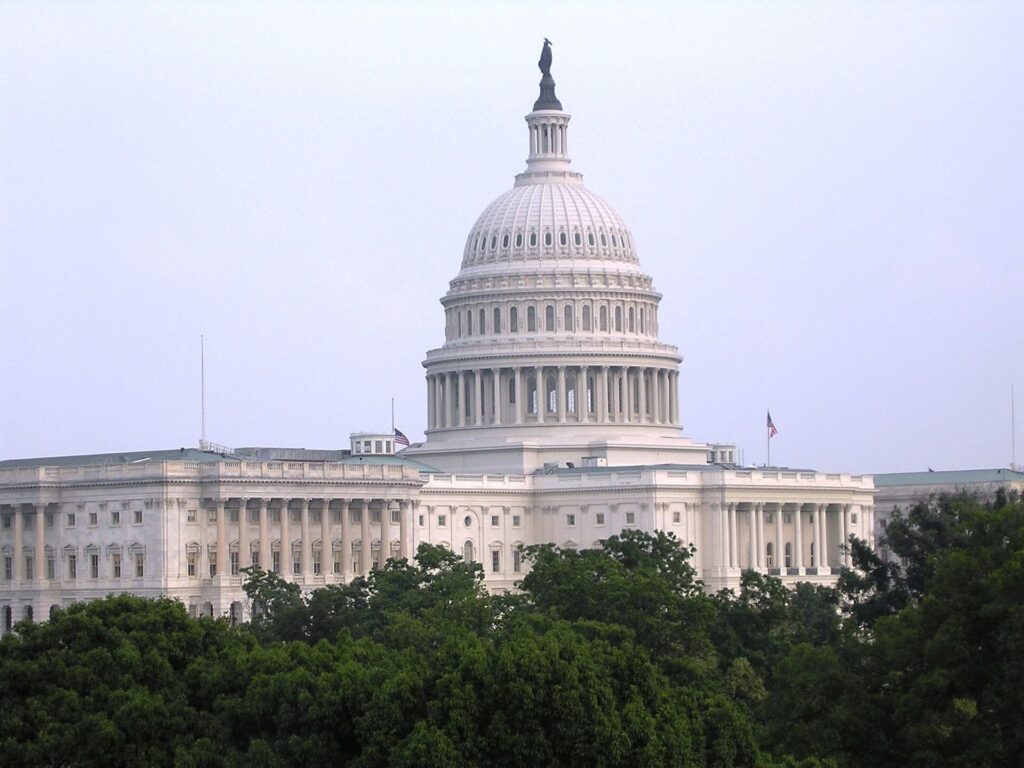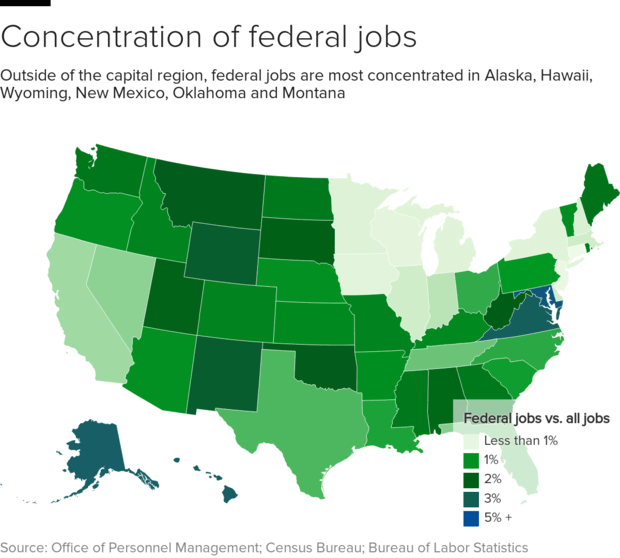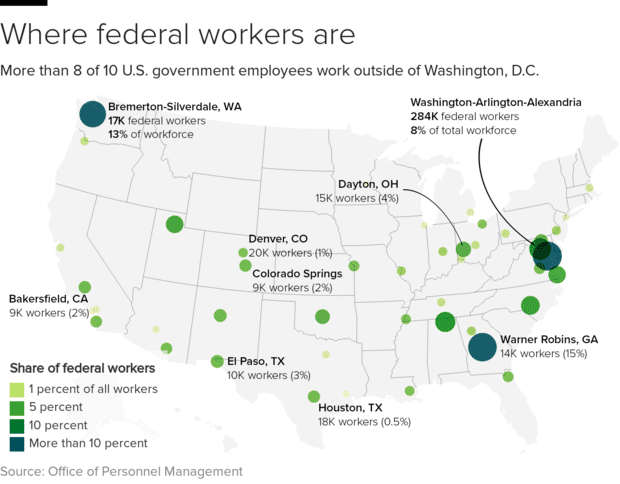
During what is the longest (partial) government shutdown in American history, hundreds of thousands federal employees are suffering. About 800,000 federal employees have been furloughed and asked to work without pay or have no work at all.
You may think you’re not at all affected by the shutdown, but the data tells another story. Everything from local economies to food safety is directly linked to the shutdown and the consequences don’t stop there. With each passing day, the shutdown intensifies and the consequences ripple out..
Consequences seen in data
Around the Capitol, businesses have lost customers and profits. Local DC restaurants have lost an average of 20% in sales (some have lost as much as 60%). But DC locals aren’t the only ones feeling the sting of the shutdown. Since government agencies have offices throughout the country, local businesses everywhere face the same pain.


Federal employees are applying for unemployment benefits, and thousands of non-federal employees may follow suit. Government contractors are the next to fall as contracts aren’t getting paid and missing clients. In a short period of time, many jobs and businesses have been jeopardized.
National parks, museums, and other government funded venues are mostly closed to the public or working at low capacity. Trash isn’t collected, there’s no security to reprimand vandals, and facilities aren’t cleaned. So while we wait at home for the shutdown to end, many national venues are facing significant damage and illegal activity.
Planning to fly? Don’t expect much service. TSA agents have been asked to work without pay, and many have started to quit. But TSA agents aren’t the only ones losing out. Thanks to closed museums, parks, and other attractions, fewer people are flying at all. Air travel is a $2.4 trillion industry that’s losing money and unable to contribute to the economy. Unpaid TSA staff, closed monuments, and no income means significantly less tourism.
Lack of data threatens livelihood
There’s more that can go wrong with fewer TSA agents. Less security and longer lines can result in overlooked security detail. Pilots are worried that understaffed flight towers will have over-worked and fatigued air traffic controllers, putting entire flights at risk.
But I don’t plan on flying, I’m not affected. You are affected, just not in the ways you might think. With the government working at half-capacity, data isn’t making its way out. You’re more at risk of identity theft because many websites from the FTC and FCC are currently down. Sites that previously protected consumers have do not have updated data to block these illegal calls. Victims of identity theft can’t report it to the government website. Still not worried? As web security certificates goes unchecked, we’re all vulnerable to online attacks.
Remember all those e.coli outbreaks and food contaminations that just last year sickened hundreds and even led to a couple deaths? The FDA investigates and studies these outbreaks to us safe from foodborne illnesses. But when 41% of FDA employees are furloughed, inspections and other safety functions will only slow down. Foodborne illnesses are already a typical occurrences, so the shutdown will only increase everyone’s chances of getting sick without the help of timely resources. We won’t get alerted to safety recalls because that department isn’t fully staffed. Hoping your line of work is safe? Maybe not. Businesses won’t get crucial reports about consumers, imports/exports, etc. and with less spending from the consumer end, we all lose a bit.
What now?
Many furloughed employees are looking for any kind of work to stay afloat, pleading on crowdfunding platforms to pay their bills, For many, there’s no guarantee they’ll even have a job once the shutdown ends and others can’t make up for lost wages. The changes in your life might be small or go unnoticed, but to thousands of others, the damage is debilitating. Deeper analytics only reveals the extent of this ongoing shutdown, and it doesn’t look good.
